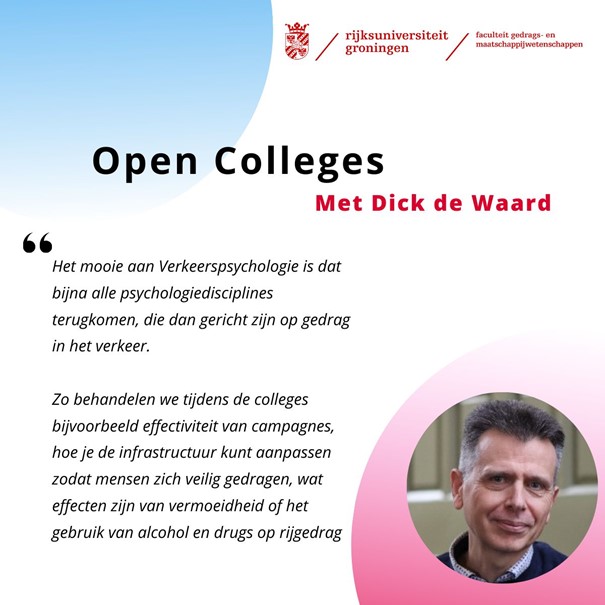Dick de Waard: Traffic Psychology & Sustained Mobility
Our participation in traffic is changing rapidly. Cars are increasingly equipped with autonomous features such as cruise control, lane assist, and automated parking. Cyclists are travelling faster thanks to the rise of e-bikes and speed pedelecs. Meanwhile, mobile phone use, as well as alcohol and drug consumption, remain significant issues on the road. Health and mobility are also crucial concerns: for example, can people continue to drive or cycle safely as they grow older?
De Waard: ‘What I love about Traffic Psychology is that almost every branch of psychology is represented, but focused on traffic behaviour. In the lectures, for instance, we discuss the effectiveness of public campaigns, how infrastructure can be designed to encourage safe behaviour, the effects of fatigue or substance use on driving, and whether it remains safe to drive or cycle when early signs of dementia appear. Sustained mobility is a central theme throughout.’
De Waard began his career as a student of experimental psychology, always drawn to applied research. This led him to the Traffic Research Centre, where he used instrumented vehicles to study driving behaviour under the influence of medication. At the University of Groningen he is currently conducting research with a state-of-the-art bicycle simulator.
‘Every day, a vast number of people take part in traffic. Everyone has an opinion about road users’ behaviour. This course provides the evidence and insight needed to address key safety issues,” Dik concludes.
This course is offered in English.



